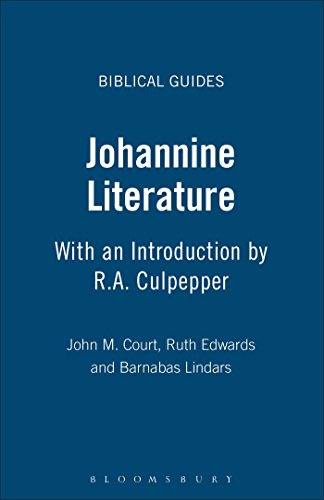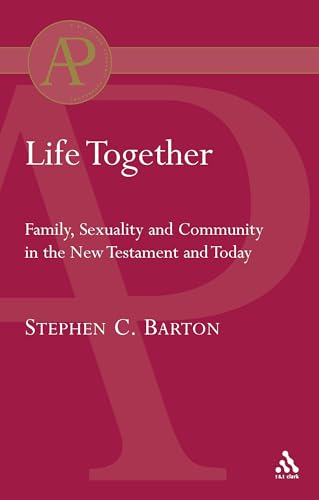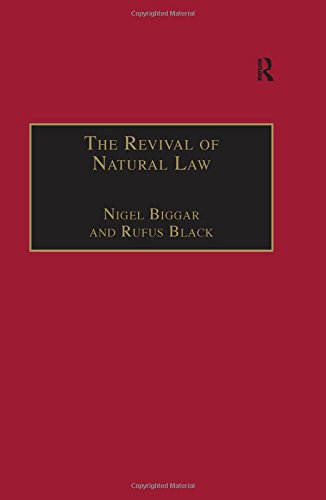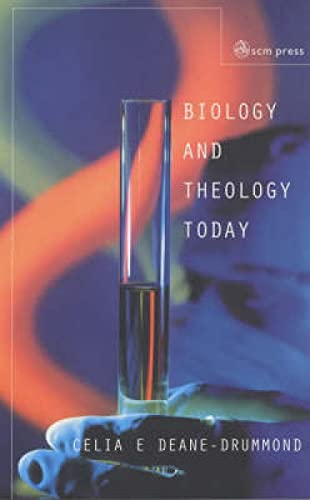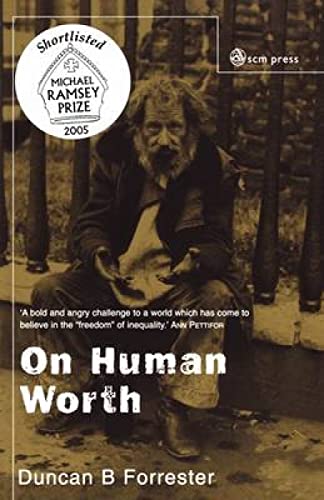Volume 27 - Issue 3
A Revolutionary Balancing Act
By Carl TruemanHaving spent my undergraduate days studying at the feet of a Marxist ancient historian who, to this day, remains one of the most brilliant and inspiring teachers I have ever had the privilege to know, ever since I have been somewhat interested in the notion of revolution. In Marxist philosophy, revolution takes place when the movement of capital has created such social tensions that the group ‘in charge’ so to speak is displaced by those whom they have previously governed. Thus, the feudal lords are displaced by the bourgeoisie, the bourgeoisie by the proletariat—unless, of course, the society happens to be in the Far East (but that’s another story, and another of those exceptions which, to the faithful at least, proves the rule).
My own interest in revolutions, however, is slightly different. As an intellectual historian committed to the study of ideas and their functions in historical context, and the role of self-understanding in the formation of cultures and movements, I am fascinated by the problem which all successful revolutionaries must ultimately face: the transition from rebels with outsider status to establishment with insider status. This is, of course, one of the themes of George Orwell’s wonderful satire, Animal Farm. Here, the move from animal to human is so seamless that the protagonists are unaware it is happening until, in the last scene, no difference can be discerned between pig and human. But it afflicts all revolutions: when do the revolutionaries stop fighting the battles of the past? When do they come to realise that their agenda must change, that the pendulum must swing back in the opposite direction? When do the particular useful insights which they bring to bear upon particular situations become not simply insights but overwhelming and exclusive ideologies which prevent them from seeing wider realities and which fundamentally distort their perception of, and responses to, reality?
The question is particularly pressing with regard to theology and the church because the need for balance is absolutely crucial if the church is to witness God’s truth to the world, and a failure to speak the whole counsel of God is a critical weakness in our testimony as Christians. The problem is, of course, that the theological history of the church is a history of revolutions, generally driven by correct concerns, but all needing to be subject to the searching criticism of God’s Word.
The issue that particularly concerns me at the moment is what I might call the crisis in systematic theology. I’m not, of course, talking here about the crisis in systematic theology in the university setting. With no coherent epistemological or ontological basis to hold itself together, the university discipline has long ago collapsed into an incoherent mish-mash of courses of the ‘Theology and …’ variety, where you insert your own particular concern or interest, be it women, ecology, politics, vegetarianism, or Tom and Jerry cartoons. Hey, it’s a postmodern world, cartoons are as worthy of time and energy as starving children, and the unifying factor in our disciplines, if there is one, must be found to our own little universes, not in the God of revelation.
No, I’m talking about the crisis in systematic theology in the churches. Now, it is, I think, true to say that fifty years ago or so in the UK there was a major problem when it came to preaching: if it happened at all, it was often little more than pious platitudes or, in very conservative circles, a lifeless reiteration of the tradition. One of the great revolutions in the church has been that this is no longer the case. Good preaching and teaching, while still not universal, is more common than it once was. We have the Lloyd-Joneses, the Stotts, the Packers, and the countless less famous yet no less competent church leaders to thank for that. More recently, we also have the biblical-theological/redemptive historical movement from Moore College, disseminated by such groups as the Proclamation Trust which has, perhaps more than any other movement over recent years, served to transform how churches read and teach the Bible. One might say, in fact, that if Lloyd-Jones led the revolution which placed preaching back at the centre of British evangelicalism, the biblical theology movement has led the second revolution which has put careful attention to Christ-centred exegesis back at the centre of preaching.
Now, all this is good and to be welcomed, and all that I say in the rest of this editorial should be read in that light. My question, however, is: have the revolutionaries become the new establishment, and are we therefore missing out on issues of crucial importance through turning the valid insights of biblical theological preaching into ideologies which exclude other, necessary emphases? I raise the question because it seems to me as I mix with students in the USA and the UK that many of them have a good grasp of biblical theology. They understand the Bible contains a narrative, that this narrative culminates in Christ, and that this imposes certain demands upon the way they exegete any given passage. The problem today is not what it was ten, twenty, or fifty years ago when fanciful pietistic exegesis and non-exegetical doctrinalism might have vied for centre stage in the church (or so we are told); it is, rather, that the triumph of biblical theology has been so complete in some quarters that we now need to realise that this new establishment might itself be generating problems of its own.
Well, what’s wrong with a biblical-theological approach, you ask? Nothing, in and of itself. But the way it pans out has, I would suggest, sometimes been less than helpful. First, there is the problem of mediocrity. It is one thing for a master of biblical theology to preach it week after week; quite another for a less talented follower so to do. We all know the old joke about the Christian fundamentalist who, when asked what was grey, furry, and lived in a tree, responded that ‘It sure sounds like a squirrel, but I know the answer to every question is “Jesus” ’. One of the problems I have with a relentless diet of biblical theological sermons from less talented (i.e., most of us) preachers is their boring mediocrity: contrived contortions of passages which are engaged in to produce the answer ‘Jesus’ every week. It doesn’t matter what the text is; the sermon is always the same.
Second, the triumph of the biblical theological method in theology and preaching has come at the very high price of a neglect of the theological tradition. The church spent nearly seventeen hundred years engaging in careful doctrinal reflection; formulating a technical language allowing her theologians to express themselves with precision and clarity; writing creeds and confessions to allow believers over the face of the earth to express themselves with one voice; and wrestling long and hard with those aspects of God which must be true if the biblical record was to be at all coherent or make any sense whatsoever. Classic systematic theology was taught systematically, not because it was divorced from exegesis (no scholar of the Middle Ages or of the sixteenth and seventeenth centuries would argue such a ridiculous thing, although the claim is frequently heard in popular circles), but because the church had a firm understanding of the need for clear teaching, a confidence in the substantial unity of God’s revelation, and a deep appreciation of the need to push beyond economic questions if there was to be such a thing as orthodoxy and it was to be defended in a coherent fashion. The economics of the history of salvation, on which the biblical theology movement is so good, were always carefully balanced by judicious reflection upon the ontological aspects of God which undergirded the whole of the church’s life and history.
My greatest concern with the biblical theology movement is that it places such an overwhelming emphasis upon the economy of salvation that it neglects these ontological aspects of theology. In doing so, it will, I believe, prove ultimately self-defeating: a divine economy without a divine ontology is unstable and will collapse. Trinitarianism will dissolve into modalism; the theological unity of the Bible will be swallowed up and destroyed by its diversity because it has no foundation in the one God who speaks; and Christian exclusivism will be sacrificed to a meaningless pluralism as the church’s narrative is reduced to having significance only within the bounds of the Christian community. I suspect that ‘openness theism’ is merely the most well known heresy to have been nurtured in the anti-doctrinal, anti-tradition world of contemporary evangelicalism; it will certainly not be the last. And my fear is that the overwhelming economic emphasis of the biblical theology trajectory effectively cuts the church off from probing the ontological questions which I believe are demanded by reflection upon the biblical text, by consideration of the church’s tradition, and by our Christian commitment to the notion of the existence of a God who has revealed himself yet whose existence is prior to that revelation.
The strategic problem, is of course, getting anyone to believe that this is so, and not just another one of Trueman’s eccentric and pessimistic takes on contemporary evangelicalism. And that problem is really a function of the fact that the old biblical theological rebels have become the new establishment but have not yet realised this and have therefore not relativised their contribution accordingly. Important insights have become controlling ideologies which cut the church off from her tradition and render her thereby impoverished. Biblical theology is—or rather, was—a necessary corrective to fanciful pietistic exegesis and mindless doctrinalism—but anyone who thinks that these are still the major problems in evangelical churches clearly inhabits a different world to the one of which I have experience. In most churches where preaching still holds a central place, I suspect that an overemphasis on doctrine and systematic theology is not the problem. After all, how many of us go to churches where the Trinitarian nature of God, while upheld in our doctrinal statements, is sidelined in preaching and worship to the point where most of us are functional Unitarians. In my experience as a teacher, it is a lack of knowledge of, say, the doctrine of the Trinity rather than puzzlement over how to preach a Christian sermon on David and Goliath which is today the most pressing problem.
Year in, year out, I teach the history of Christian doctrine; and, year in year out, I have not only taken flack from those liberals for whom the whole idea of doctrine is somewhat fanciful; I have also taken flack from those evangelicals who ‘just have their Bible’. That the church wrestled for at least 1700 years with issues of systematic theology, not just biblical narrative, and did so in a manner which sought to preserve the balance between economy and ontology in the church’s proclamation of God in Christ, is lost on such students. My fear is that the biblical theology movement, while striving to place the Word back at the centre of the church’s life, is inadequate in and by itself for the theological task of defending and articulating the faith. Reflection upon the wider church tradition is needed, creeds, confessions and all, because this is the best way to understand how and where the discipline of biblical theology and redemptive history can be of use to the wider picture without it usurping and excluding other, equally necessary and important theological disciplines. Christianity is Trinitarian at its very core, and it is my suspicion that biblical theology on its own is inadequate to protect and defend that core. We need ontology as well as economy if we are to do justice to the Bible’s teaching on who God is and what he has done. The biblical theological revolutionaries have become the new establishment, it is time for those of us rebels who think that the Bible raises more than just redemptive-historical questions, and that the creedal tradition of the church gives important insights on this, to raise our voices in dissent, to highlight the very real dangers of making this insight into an ideology and to do our best to bring the pendulum back a little.
For those wishing to pursue these ideas further, consult Richard A. Muller, The Study of Theology: from biblical interpretation to contemporary formulation (Zondervan, 1991)
Carl Trueman
Carl Trueman is Professor of Biblical and Religious Studies at Grove City College in Grove City, Pennsylvania.


